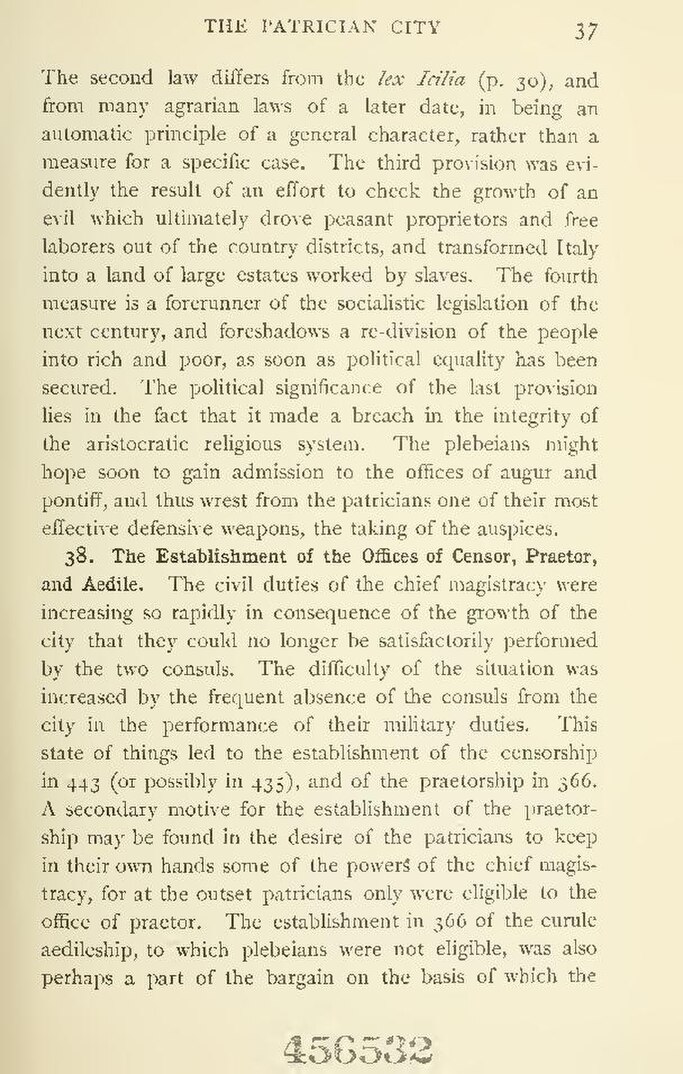The second law differs from the lex Icilia (p. 30), and from many agrarian laws of a later date, in being an automatic principle of a general character, rather than a measure for a specific case. The third provision was evidently the result of an effort to check the growth of an evil which ultimately drove peasant proprietors and free laborers out of the country districts, and transformed Italy into a land of large estates worked by slaves. The fourth measure is a forerunner of the socialistic legislation of the next century, and foreshadows the re-division of the people into rich and poor, as soon as political equality has been secured. The political significance of the last provision lies in the fact that it made a breach into the integrity of the aristocratic religious system. The plebeians might hope soon to gain admission to the offices of augur and pontiff, and thus wrest from the patricians one of their most effective defensive weapons, the taking of auspices.
38. The Establishment of the Offices of Censor, Praetor, and Aedile. The civil duties of the chief magistracy were increasing so rapidly in consequence of the growth of the city that they could no longer be satisfactorily performed by the two consuls. The difficulty of the situation was increased by the frequent absence of the consuls from the city in the performance of their military duties. This state of things led to the establishment of the censorship in 443 (or possibly in 435), and of the praetorship in 366. A secondary motive for the establishment of the praetorship may be found in the desire of the patricians to keep in their own hands some of the powers of the chief magistracy, for at the outset patricians only were eligible to the office of praetor. The establishment in 366 of the curule aedilship, to which plebeians were not eligible, was also perhaps a part of the bargain on the bases of which the
